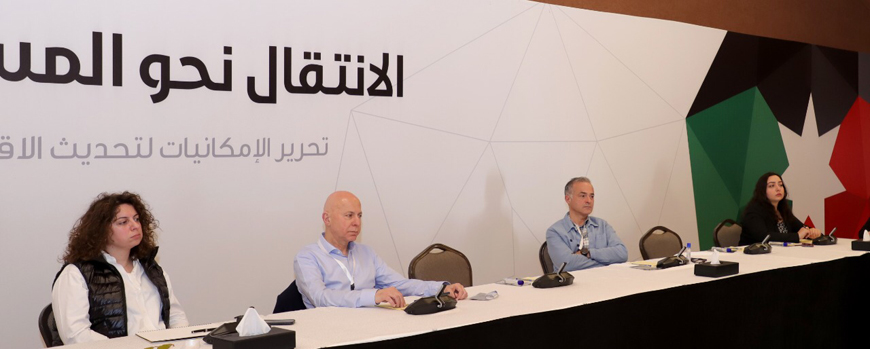AMMAN — The Information Communication Technology (ICT) sector in Jordan aims to increase its GDP contribution by five times in the next 10 years, according to discussions at the National Economic Workshop.
The workshop continued on Saturday at the Royal Hashemite Court, to discuss the final outputs of several economic sectors.
ICT sector experts, officials, academics and representatives discussed the requirements of the sector to achieve a larger GDP contribution, noting that there is a correlation between the number of employees and the sector’s growth.
According to the panel, the ICT sector has 13,000 graduates every year, who require “re-skilling and up-skilling”.
During the session, the panel discussed the strategic state of the sector, as 27 of the MENA region’s top 100 tech entrepreneurs are in Jordan.
Experts highlighted the challenges the sector faces, most importantly data shortage, the absence of a digital government, outdated regulations, the absence of open application programming interface (APIs), energy costs, the lack of English language skills and much more.
The discussion emphasised the need to establish a national data centre, as well as to reduce energy costs by regulating the tariff according to consumption, along with attracting investment, outsourcing, and strengthening public-private collaboration to accelerate digital government transformation.
Ashraf Bany Mohammed, board member of the Innovative Startups and SMEs Fund (ISSF), noted that there are 12 immediate initiatives that are planned to be implemented between three months and five years within the sector’s strategic vision.
The initiatives will include more than 30 programmes throughout the next 10 years to create five times more growth than the sector’s current numbers.
“The most important and prioritised initiatives will work on creating job opportunities, facilitating some of the regulations for doing business, leveraging, re-skilling and up skilling university graduates to meet the global demand (not only local demand), opening and providing access to new markets for Jordan in digital economy,” Bany Mohammed told The Jordan Times on Saturday during an interview.
He noted that the ICT sector is expected to create 80,000 new jobs by 2031.
Bany Mohammed said that the ICT sector is “the infrastructure” that provides the support and enablers for other sectors, noting that there will be a macro-level vision that will integrate how the ICT sector will contribute to other sectors based on a priority matrix.
He said that the new vision will focus on ICT infrastructure, such as the very important 5G, re-skilling and upskilling talents, providing access to finance and easy tools to support startups in the ICT and digital economy sectors, as well as opening new markets.
